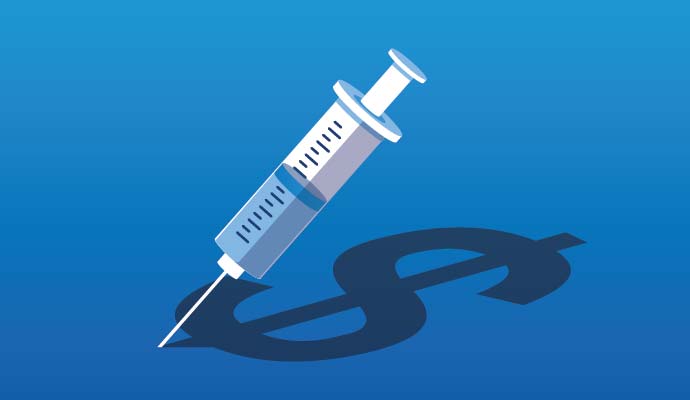Former SARS, MERS Drug Could Treat COVID-19 Patients
Antiviral Remdesivir, used previously as a treatment for MERS and SARS, showed results that it may be an effective and safe vaccine for patients with COVID-19, the coronavirus.

Source: Thinkstock
- Remdesivir is effective in treating Middle East respiratory syndrome (MERS) and severe acute respiratory syndrome (SARS), but also may be a successful drug for patients with coronavirus, or COVID-19, according to researchers at the University of Alberta.
For more coronavirus updates, visit our resource page, updated twice daily by Xtelligent Healthcare Media.
“We know the drug works against different coronavirus, like MERS and SARS, and we know the novel coronavirus is very similar to SARS. So I would say I’m cautiously optimistic that the results our team found with remdesivir and MERS will be similar with COVID-19,” said Matthias Gotte, a virologist, in a statement
Until now, there has not been a public explanation why remdesivir may work against coronavirus.
“Even if you know a drug works, it can be a red flag if you don’t know how it works. It is reassuring if you know exactly how it works against the target,” Gotte said.
Remdesivir, an investigational broad-spectrum antiviral treatment, was developed by Gilead Sciences Inc to treat Ebola back in 2013, but experts believe it is a promising treatment for COVID-19.
“Remdesivir has demonstrated in vitro and in vivo activity in animal models against the viral pathogens MERS and SARS, which are also coronaviruses and are structurally similar to COVID-19. The limited preclinical data on remdesivir in MERS and SARS indicate that remdesivir may have potential activity against COVID-19,” according to a recent article.
According to the New England Journal of Medicine, remdesivir was first used on a patient earlier this year on the seventh day of illness and showed improvement the following day. The symptoms eventually disappeared altogether.
“What our study showed was that remdesivir essentially mimics one of the natural building blocks of RNA synthesis necessary for genome replication of the virus,” Bruce Alyward, assistant director general of the World Health Organization said at a recent press conference in Beijing.
“Enzymes within the virus are synthesizing the RNA genome with these building blocks, but they mix up the bits they need with the drug. Once the drug is incorporated into the growing RNA chain, the virus can no longer replicate,” he continued.
The next step is to wait for the results from the clinical trials, expected at the end of April.
And in late February, the National Institute of Health (NIH) announced they were sponsoring the first controlled clinical trial in the US at the University of Nebraska Medical Center (UNMC) to evaluate a possible COVID-19 vaccine.
The trial will uncover the safety and efficacy of the antiviral remdesivir in adults affected with COVID-19.
“We urgently need a safe and effective treatment for COVID-19. Although remdesivir has been administered to some patients with COVID-19, we do not have solid data to indicate it can improve clinical outcomes,” said Anthony S. Fauci, MD, NIAID director and US coronavirus task force member, in a statement.
The first US trial participant is an American who volunteered after being quarantined on the cruise ship that docked in Yokohama, Japan, earlier this month. The results will continue to be monitored to ensure patient safety. And on day 15, researchers will be able to unveil if remdesivir was affective.
“It’s likely we’ll need more than one drug to properly fight emerging diseases like COVID-19, as we have with HIV and hepatitis C virus infections. Ideally, we will have a couple of drugs because certain strains could be resistant to certain treatments,” Gotte concluded.
